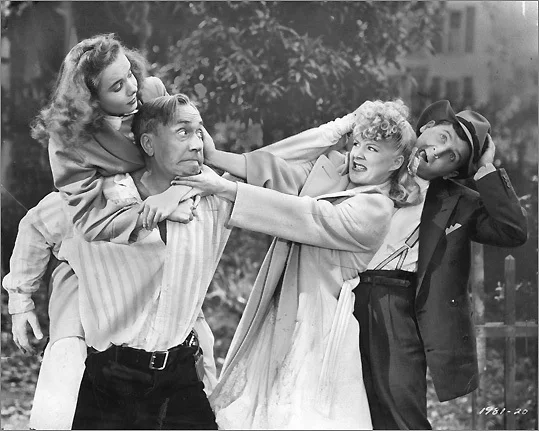Cast: Fredric March, Veronica Lake, Robert Benchley, Cecil Kellaway, Susan Hayward, Elizabeth Patterson, Robert Warwick. Screenplay: Robert Pirosh, Marc Connelly, based on a novel by Thorne Smith and Norman Matson. Cinematography: Ted Tetzlaff. Art direction: Hans Dreier, Ernst Fegté. Film editing: Eda Warren. Music: Roy Webb.
This somewhat over-frantic supernatural romantic comedy was the product of much friction during its preparation and filming, and it shows. At various points, Preston Sturges (as producer), Dalton Trumbo (as screenwriter), and Joel McCrea (as the male lead) were involved with it and left because of conflicts with director René Clair and actress Veronica Lake (who also fought with Fredric March after he took over the lead from McCrea, who had hated working with her a year earlier on Sturges's Sullivan's Travels). The premise is that two witches, Jennifer (Lake) and her father, Daniel (Cecil Kellaway), burned at the stake in 17th century Salem, have returned from the dead to haunt the descendant of the man who had them burned. He happens to be a gubernatorial candidate in Massachusetts, Wallace Wooley (March), who is also on the verge of marrying a shrewish snob played by Susan Hayward. Daniel casts a spell to give Jennifer a mortal form, whereupon she puts an end to the wedding but also falls in love with Wallace. Complications ensue in a brittle and occasionally rather cruel comedy in which no one either in front of or behind the camera seems to be working at top form.


